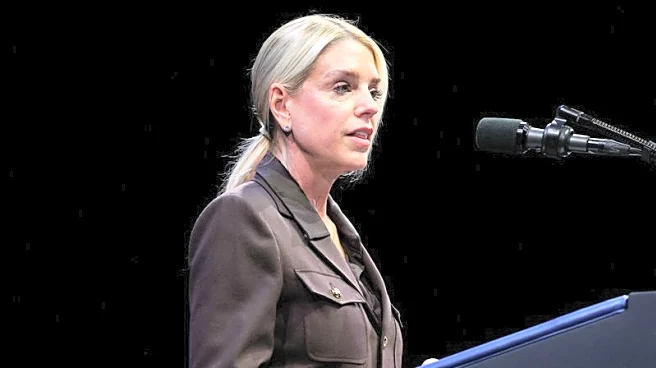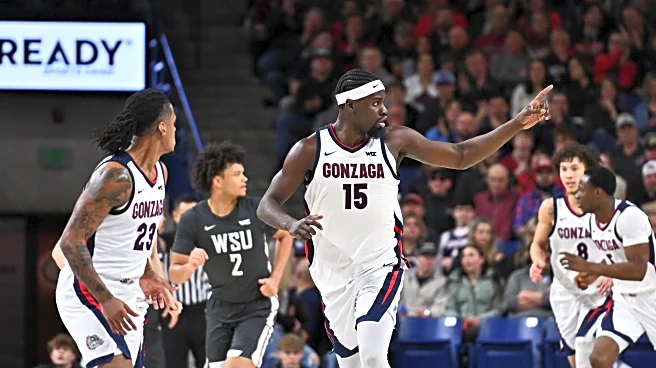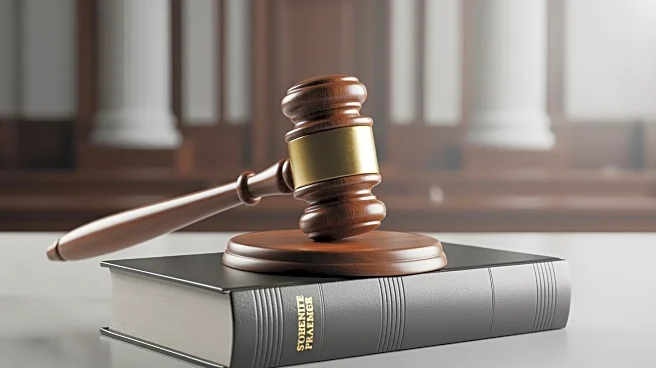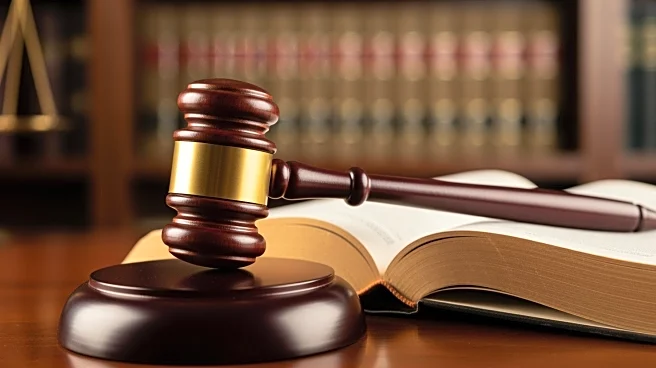By Sarah N. Lynch
WASHINGTON (Reuters) -During his four years between presidencies, Donald Trump accused the U.S. Justice Department of unfairly targeting him and vowed revenge.
President Trump's attorney general, Pam Bondi, is carrying out that directive, current and former department officials say, in ways that are breaking long-standing norms.
It started with the removal of career employees, who typically serve from administration to administration, including gatekeepers who managed conflicts, investigated
attorney misconduct and oversaw sensitive political investigations. About 200 were fired, according to Justice Connection, an advocacy group for DOJ employees.
The 59-year-old Tampa-raised former Florida attorney general was an early supporter of Trump's political aspirations, endorsing him in March 2016, when his presidential campaign was still viewed as a long shot.
Under her leadership, the department has broken with its longstanding practice of not commenting on investigations. It publicized early-stage probes of former FBI Director James Comey and former CIA Director John Brennan and allowed Ed Martin, who is investigating mortgage-fraud allegations against New York Attorney General Letitia James, to pose for photographs outside her home.
On her first day, Bondi, issued a memo telling department attorneys, who swear an oath to uphold the U.S. Constitution, that they serve as Trump's lawyers, and they can be fired for refusing to appear in court or sign briefs.
The changes helped spur more than 70% of the Civil Rights Division's staff to leave, rather than pursue what many see as politically-motivated investigations targeting universities, Democratic-run states and municipalities and minority groups, including transgender people.
The department has launched criminal probes into Trump's perceived enemies, searching the home of former national security adviser John Bolton, and using grand juries to probe mortgage-fraud allegations against James, Democratic Senator Adam Schiff and Federal Reserve Board Governor Lisa Cook.
"What we're all seeing is neither random nor spontaneous," said Abbe Lowell, an attorney representing James, Cook and Bolton, saying the department is bolstering Trump's executive powers "to execute his revenge tour."
The DOJ declined to make Bondi available for an interview. A spokesperson defended her record.
"The mission of the Department of Justice is to uphold the rule of law, to keep our country safe, and to protect civil rights," the spokesperson said. "Every day we are working hard to restore trust in the institution. In the previous administration, the Department of Justice exhibited an abuse of prosecutorial power."
'WHAT DID THEY THINK WOULD HAPPEN?'
James Burnham, a senior DOJ official in Trump’s first term, said prior administrations weaponized the department by investigating Trump's 2016 campaign and bringing two indictments against him that were dismissed after his election.
“What did they think would happen? They tried to put the president in prison,” he said.
He added that many guidelines put in place after the Watergate scandal that felled former President Richard Nixon instilled career officials with too much power.
“The post-Nixon tradition of letting career prosecutors set the enforcement agenda has yielded innumerable bad outcomes---overcriminalization, over-prosecution, and the permanent bureaucracy generally behaving in the way any bureaucracy behaves, which is maximalist,” Burnham said.
Current and former officials say these guidelines, spelled out in the Justice Manual, are crucial to prosecutorial independence but the manual lacks an enforcement mechanism.
"There are no checks on the immeasurable power of the Justice Department right now," said Stacey Young, a former department attorney who founded Justice Connection. "There's very little that anybody can do to control the leaders of the department."
Bondi has little interaction with department employees, current and former officials say.
Trump selected Bondi after his first choice, former U.S. Representative Matt Gaetz, withdrew amid a lack of support in the Republican-controlled U.S. Senate.
Initially, career attorneys breathed sighs of relief.
"There was a lot of actual hope that she would be a good attorney general because she had prior prosecutorial experience," said Andrew Tessman, who recently departed a West Virginia U.S. Attorney's Office.
"I think the sense in the department is that she is basically a mouthpiece for Donald Trump."
PAPER STRAWS AND PRONOUNS
Current and former employees said messages from leadership have been tone deaf.
The day the Public Integrity Section, which prosecutes public corruption cases, learned it would be largely dismantled, Bondi's sole message to the department directed employees to stop using paper straws.
A day after federal agents flooded Washington as part of Trump's crime crackdown, Deputy Attorney General Todd Blanche ordered staff to delete pronouns from their email signatures.
The DOJ did not make Blanche available for an interview. A spokesperson touted the results of the crackdown in Washington, D.C., saying it has led to "over 2,000 arrests."
The changes to the department's Civil Rights unit have been profound. It has highlighted discrimination investigations of colleges and government offices that would normally not be made public.
It withdrew from pending agreements with the Minneapolis and Louisville police departments over widespread civil rights abuses, and rescinded prior police abuse findings.
Investigations have been opened by political leaders, and not through the usual referral process, according to five people familiar with the matter. The investigations have been fast-tracked, with staff expected to complete them in months.
Bondi ordered the dropping of a lawsuit challenging a Georgia law the Biden administration called discriminatory to Black voters, saying it represented a "weaponized" DOJ.
She has pursued policies targeting transgender youth, suing Maine for permitting transgender girls to play on girls' sports teams, and launching investigations into doctors who provide children gender-affirming care.
A DOJ spokesperson said that under Bondi's leadership the division "has been restored to its original mission of protecting the constitutional rights of all Americans, instead of pursuing a targeted political agenda against administration opponents."
Former division employees see it differently.
“The Civil Rights Division no longer does civil rights enforcement,” said Ejaz Baluch, a former department attorney.
"Politics seems to be the main animating factor about who works in the division, and which cases are brought and which cases are dismissed.”
(Reporting by Sarah N. Lynch; editing by Scott Malone and Alistair Bell)


















